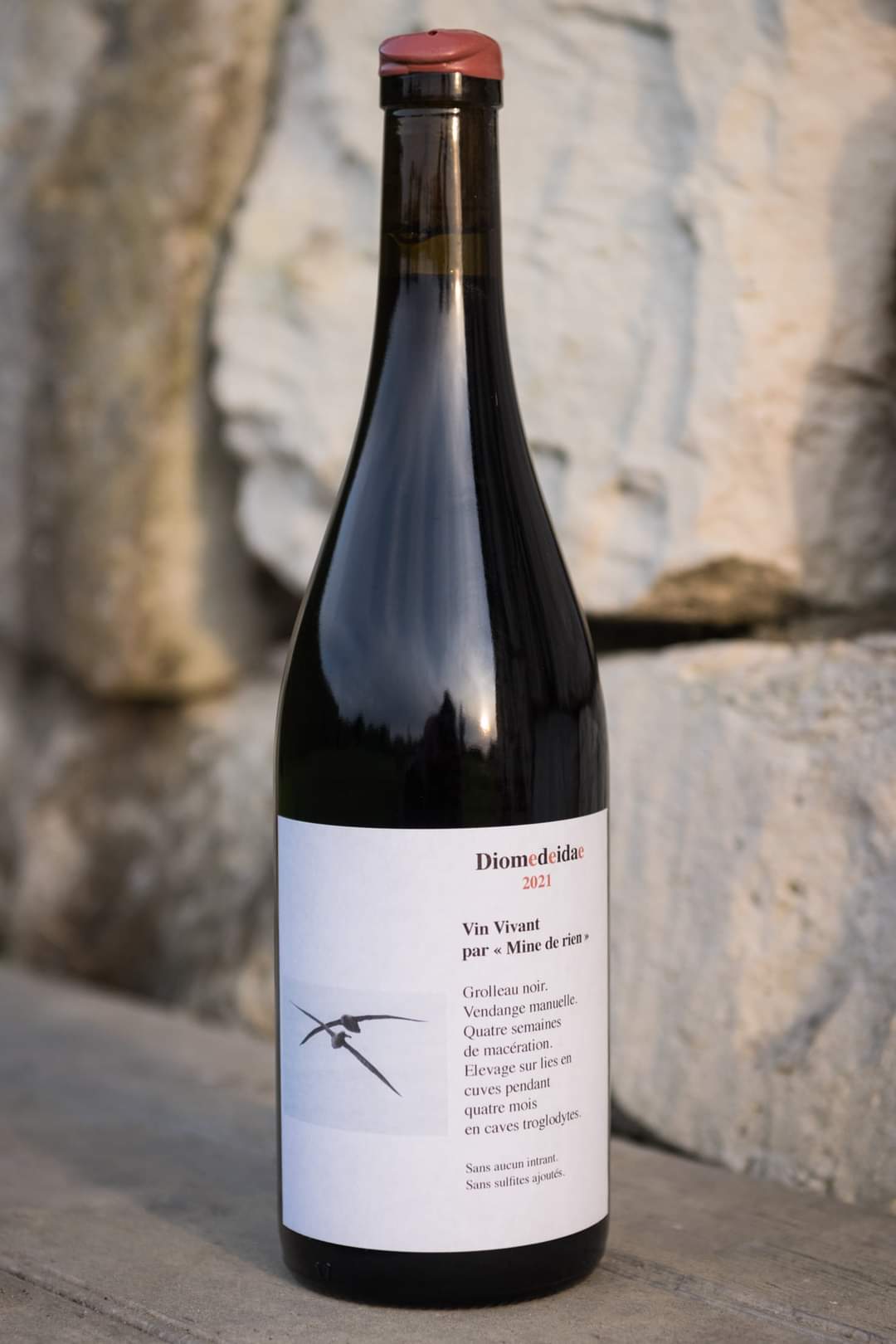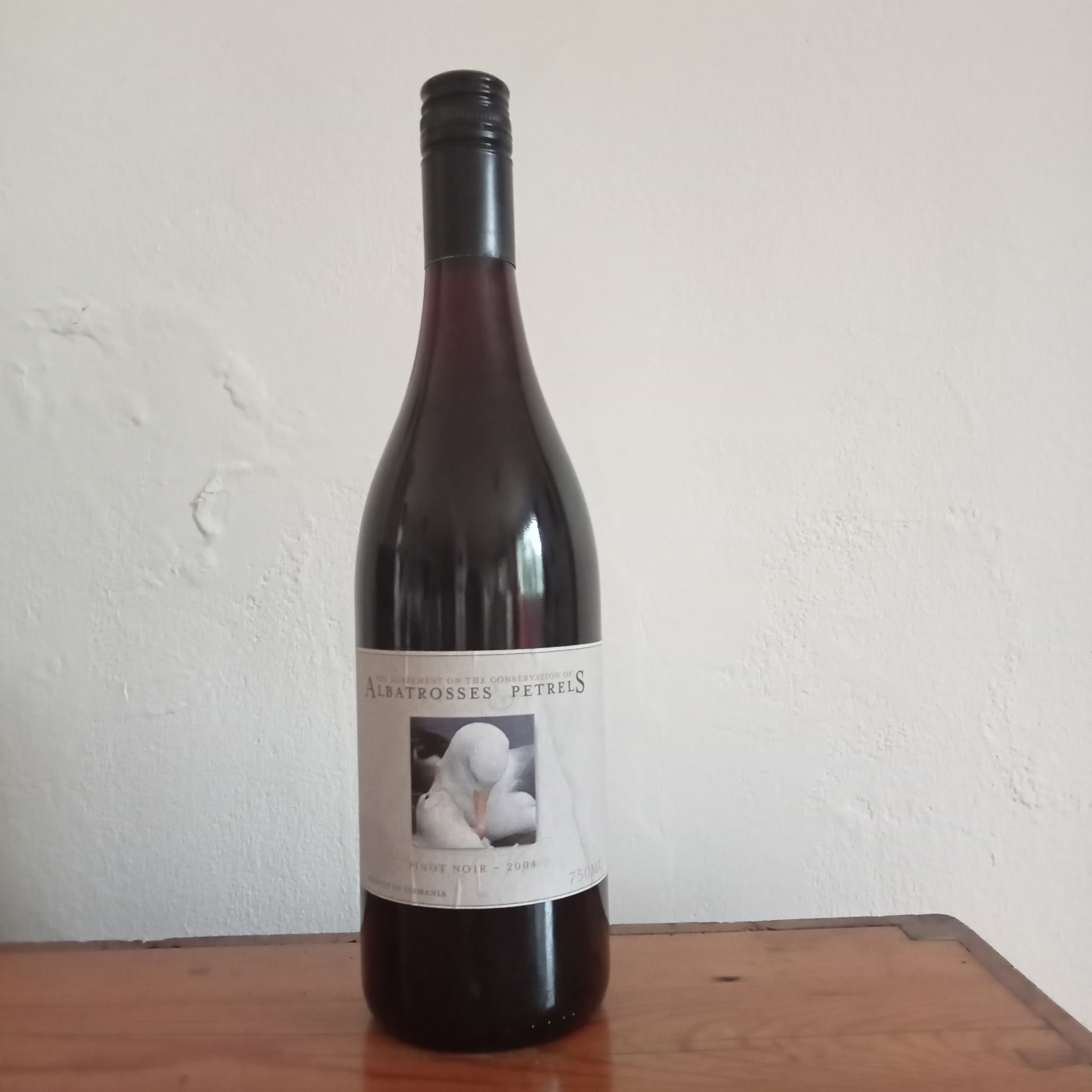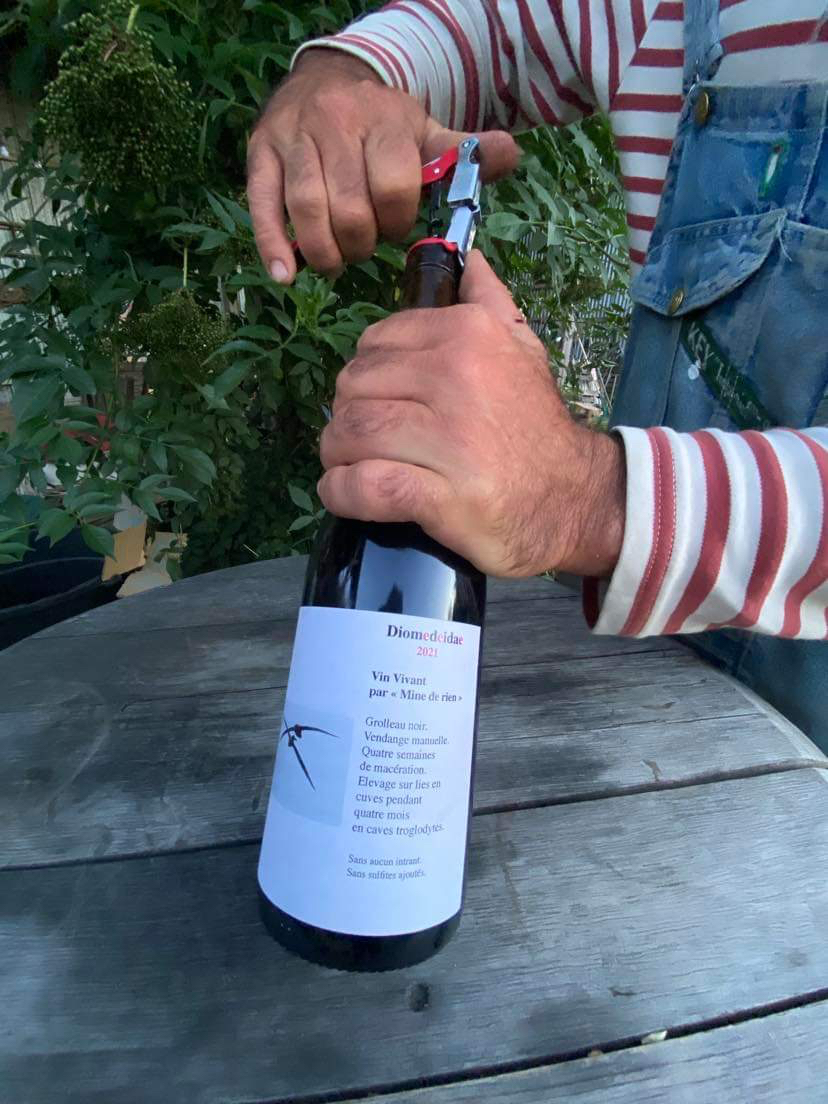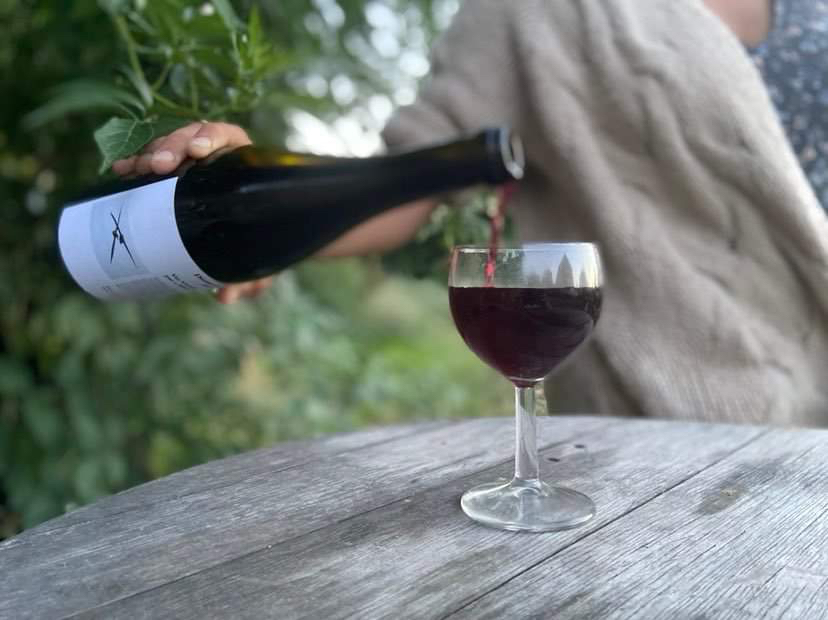
The Diomedeidae 2021 Grolleau Noir
In November 2004, Australia hosted the First Session of the Meeting of the Partier to the Agreement on the Conservation of Albatrosses and Petrels. MoP1 was held in Hobart, Tasmania and closed with a dinner in the city’s Tasmanian Museum and Art Gallery. With live seven-string guitar music composed and played by Cary Lewincamp, a guided visit to view the museum’s collection of specimens (including a skin) of the extinct Thylacine (or Tasmanian Tiger) Thylacinus cynocephalus in a locked storeroom, it was a memorable affair, enlivened by the tables adorned by wine especially bottled for the occasion. A 2004 Pinot Noir produced in Tasmania, it went down well among the MoP1 attendees. The ACAP Information Officer still has an unopened bottle which he brought all the way back to South Africa after the meeting as a souvenir.

The MoP1 Pinot Noir
Now France has joined the “Albatross Wine Club” by bottling a Grolleau Noir under the label “Diomedeidae 2021”. Wine maker Jean Derrien produces “Mine de rien” wines, which he describes to ACAP Latest News as being “without pretension, completely natural and eco-friendly”. His albatross wine is made from vines grown organically and biodynamically in the Loire Region in the west of France.
The grapes were handpicked in October 2020. They were then pressed for 36 hours utilizing a vertical hydraulic press, macerated for three weeks, followed by four months in a “troglodyte cave” without the addition of sulphur, nitrogen or yeasts; making the red wine a 100% product from the fermentation of grapes. Bottling is by gravity.
Jean describes himself as having been a vineyard worker for 10 years and a natural winemaker for five, creating his natural wine company in 2019. He explains he is sensitive to ecological issues and is dedicated to sustainable grape production and that the wine’s name Diomedeidae pays homage to the albatross, which is also the nickname of a friend who has helped produce his wines.
Jérémy Dechartre, who has also helped with the production of Diomedeidae 2021 by supplying photographs (including those here), is a marine ornithologist and mammologist who conducted field research on France’s Amsterdam Island with the 70th Mission over 2019/20 on the project “Birds and Marine Mammals, Sentinels of Global Changes in the Southern Ocean”. While on the island he supported the inaugural World Albatross Day on 19 June 2020 by displaying a banner (click here).


À votre santé !
The ACAP Information Officer, who is no longer a consumer of alcohol, natural or otherwise, wonders what his 2004 ACAP Pinot Noir might taste like after 18 years in the bottle. Ideas anybody? He also thinks Jean and Jérémy could collaborate once more to produce a Grolleau Noir to celebrate the Fourth World Albatross Day/Journée mondiale de l’albatros on 19 June 2023.
With thanks to Jérémy Dechartre and Jean Dessin.
John Cooper, ACAP Information Officer, 18 July 2022
Jean Dessin also sent ALN notes on his albatross wine in his home language, repeated verbatim here.
DIOMEDEIDAE 2021

 English
English  Français
Français  Español
Español